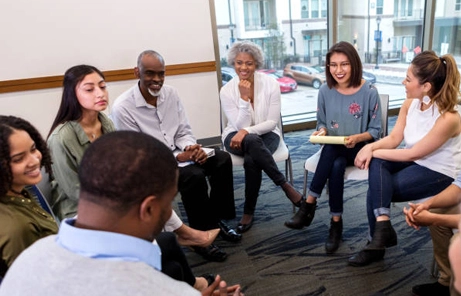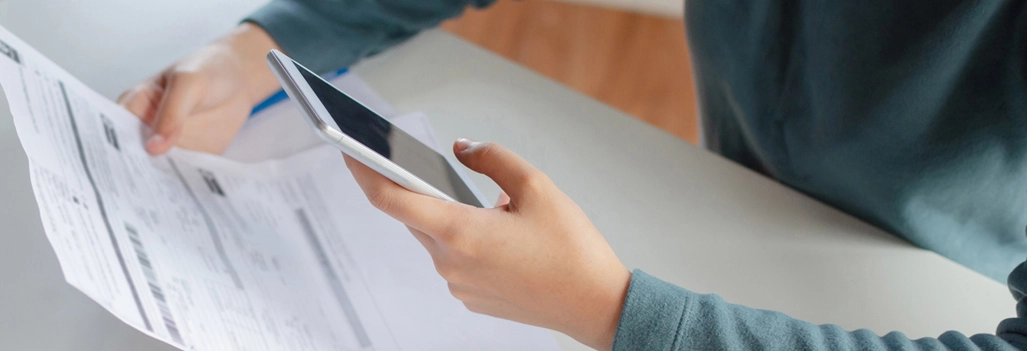Alcohol and drug disorders introduce challenges when you or a loved one experiences them. Although addiction is a disease, it is manageable when evidence-based rehabilitation approaches are utilized. Long term addiction recovery is possible.
Discover more about how holistic rehabilitation services can assist yourself or someone you love in starting and maintaining recovery from substance dependence.
What is Addiction Rehab (Rehabilitation)?
When we speak about addiction ‘rehabilitation’, we mean the combination of medical and therapeutic treatments used to resolve dependencies on alcohol and drugs (including prescription medications).
Rehab is best when it is tailored to your own needs involving a medically-managed detox, inpatient and outpatient programs, as well as relapse prevention techniques.

Facts & Statistics about Addiction in Sonoma
Prevalence of Substance Use Disorder, by Drug Type
(IN THOUSANDS)
- 2,7578.5%Any Substance
- 2,0886.4%Alcohol
- 1,0683.3%Ilicit Drugs
- 2060.6%Pain Medication
Drug- and Alcohol-Induced Deaths by Age Group, California, 2016
- Alcohol-Induced
- Drug-Induced
- 18 to 250.5
- 9.6
- 26 to 354.3
- 13.9
- 36 to 6424.2
- 22.9
- 65+23.7
- 9.4
Drug Use, by Selected Type and Age Group California, 2015 to 2016
- 12 to 17
- 18 to 25
- 26+
- Marijuana*13.2%
- 34.0%
- 13.5%
- Misuse of Pain Medications3.5%
- 8.0%
- 4.3%
- Cocaine0.8%
- 7.2%
- 1.8%
- Heroin0%
- 0.4%
- 0.2%
What are the treatment options available in Sonoma?
A consolidated treatment approach provides a successful way to identify and address the prime causes of drug or alcohol addictions. Although symptoms of addiction need to be overcome, life skills will also be encouraged in order to focus on the main causes of your addiction issues.

Private Residential Programs
Living at a addiction rehab center and undergoing all of your treatments there is called being in a residential rehab program. Its core benefit is that you will receive integrated treatment and support throughout the day. Moving out of your home environment and entering a treatment facility will protect you against the stressors that negatively encourage your substance use.
You will be less susceptible to relapse when you complete your rehab program in a controlled center where the environment is supportive. Those who are struggling with dual diagnosis, co-occurring disorders and severe dependencies are strongly advised to consider an inpatient addiction treatment program.
Taking part in a residential treatment program is an effective way to treat addiction, and sustaining it will require persistent focus because addiction recovery is a challenge during the first year. After your inpatient addiction treatment, you must consider what you’d like from your new life, as you focus on becoming more independent.
Do You Need Help?
We work together towards sobriety.

Sober Living Programs
A sober living program will provide you with the skills you need, using guidance and support. You can expect:
- A house manager who visits you daily
- Supporting you on acceptable ways to behave in recovery
- Fostering necessary friendships with others in recovery who can empathize with your experiences
Outpatient Programs
Outpatient rehab programs offer more flexibility because you can continue with work commitments while living at home, but you attend the rehab facility for addiction treatments.
Outpatient programs usually provide you with:
- Education around substance misuse
- Counseling services and therapy through group support or individual sessions – The minimum duration of outpatient treatment is three months and continue for longer than a year, this will depend on your individual requirements.
Detox Only Programs
A detox program is the first step in rehab and is performed to break your physical dependency on a substance by removing any trace of it from your system. As your body returns to normal function without the substance in your body, you could experience withdrawal symptoms.
The withdrawal process symbolizes the beginning of the process of rehab, and should always be followed up by addressing the main causes of your dependency, to prevent the same pattern of behaviors. It is possible that you will develop some cravings and withdrawal symptoms for some time after your drug or alcohol detox program has concluded. In rehab you will develop the coping skills for long-term abstinence, so that you can reduce the risk of relapse in the future.
Paying for Private Treatment
The private rehab costs may be claimed back through your insurance policy or self-funded. A large number of health insurance providers will cover at least a portion of your rehab treatment, including detox, rehab therapy, medication and post-rehab support. The amount of cover given will differ based on the details of your policy as well as your provider’s terms of agreement.
It is good practice to find out about your cover prior to enrolling in a rehab program. Click on our Verify Your Insurance page to find out about the cover you qualify for.
If you decide not to claim from your policy, you will need to fund your treatment. Some rehab facilities include payment plans to clients so that cost is not a barrier to treatment.
State Funded Programs
State-funded rehabilitation programs are useful for those who struggle with alcohol addiction or substance dependencies and who may not have the resources to afford private treatment.
Through the use of funds from federal and state resources including Medicaid, these programs may provide treatments such as:
- Medically supervised drug or alcohol detox
- Rehabilitation services and aftercare support
Those with no private health cover or live in households with low combined income may apply for a state-funded rehab program. So that you can begin the application, you will need to provide:
- Supporting Evidence that you are a US resident
- Proof of income
- Proof of address
- Medical details about your substance misuse
https://www.grants.gov/ has all the info you need to make an application.
If you need the contact details for your state agency, this document provides the necessary information

The following state-funded addiction rehab programs are available in Sonoma:
Mountain Vista Farm
3020 Warm Springs Road, Glen Ellen, CA 95442
707-996-6716
www.mountainvistafarm.comAldea Aldea Behavioral Health Services
2310 1st Street, Napa, CA 94559
707-255-1855
www.aldeainc.org/
Maintaining Addiction Recovery in Sonoma
You may experience some initial difficulties once you leave rehab. During your stay, you have been in a controlled and safe environment, supported by professionals. As you adjust to life after rehab it is very likely that you will find yourself in situations that you still need to learn to address. If you had a severe dependency or if you leave rehab without the appropriate social support, you will find long term recovery to be more challenging. Relapse can happen if you don’t have the appropriate aftercare or support to guide you into your new future.
The following AA/NA meetings are available in Sonoma:
AA - Eye Opener Sonoma
Open and Wheelchair Access: 276 East Napa Street, Sonoma, CA, 95476
Sunday: 7:30 am – 8:30 am
https://alcoholicsanonymous.com/FAITH LUTHERAN CHURCH
Vision Of Hope Group, Step and Open: 19355 Arnold Drive, Sonoma, CA, 95476
Sunday: 7:30 pm
https://www.drugstrategies.org/SONOMA VALLEY HOSPITAL
Sonoma Sunday AM Group, Discussion/Participation,
Non-Smoking and Open: 347 Andrieux Street, Sonoma, CA, 95476
Sunday: 10:00 am
https://www.drugstrategies.org/
Aftercare & Alumni Programs
Aftercare programs provide extended support to you when you leave the rehab center. By participating in aftercare support, you can lessen the risk of relapse which impacts up to 60% of clients who have recently finished treatment. It is an essential service provided by most treatment centres.
When your treatment is nearing completion, we will discuss the therapies and counseling that is supportive of your long-term recovery and the appropriate aftercare provisions will be created to assist you. Alumni programs are a useful benefit to completing treatment and gives you community based support with former clients and staff.
You will enjoy access to Alumni events and receive support and encouragement from individuals who are in recovery long-term. You may want to pay the favor forward, by offering your support to other members.
Support Groups (Fellowship Meetings)
Support groups really are important to maintaining sobriety as they monopolize the need for social connections in addiction recovery. A couple of the best and most important support groups are Alcoholics Anonymous and Narcotics Anonymous, which make use of the 12-step model to help those in recovery via local meetings.
When you attend nearby support group sessions you will hear, and learn from, the recovery journeys of other individuals. Companionship, empowerment and accountability for our actions are key to long-term recovery, and support groups provide many with the necessary tools to stay sober.

Support for Families & Children Affected by Addiction

Some individuals in an addicted household are impacted more than other individuals. Although the individual battling with substance misuse certainly needs help and support, other members of the household also need support.
Participating in family support groups can help you to cope better, as well as help you to provide greater support to those struggling with dependency.
Some Family and Child Support Groups include:
- NAMI Family Support Groups
- Al-Anon
- Families Anonymous
- Alateen
- Nar-Anon
- Parents of Addicted Loved Ones
- SMART Recovery Family & Friends









